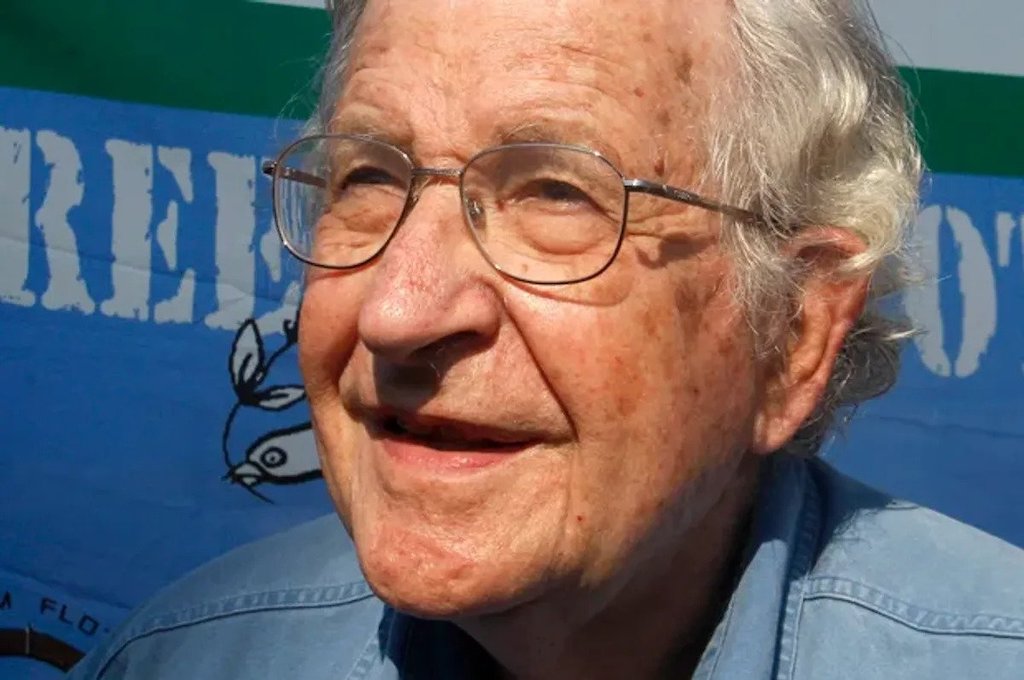One of the most ludicrous—and debunked—claims of the far right is that the mainstream media in the United States has an inherent liberal/progressive bias. But Noam Chomsky tore that claim apart in his 1988 book, “Manufacturing Consent: The Political Economy of the Mass Media” (which he co-wrote with the late economist/media scholar Edward S. Herman).
The real media bias, Chomsky stressed, was a corporate bias dictated by advertising and soundbites. And 30 years later, the 90-year-old Chomsky revisited his book during a recent interview with Al Jazeera English.
“The myth is that the media are independent, adversarial, courageous, struggling against power,” Chomsky told Al Jazeera, stressing what while the United States often has “very fine reporters, correspondents” who do “an honest, courageous job,” they “must operate within a framework that determines what to discuss, what not to discuss.
What we try to demonstrate in the book is that if you simply look at the institutional structure of the media within a state capitalist society like ours, they are performing pretty much the way you would expect.”
Soundbites, Chomsky told Al Jazeera, are an effective propaganda tool because propagandists “can say anything they want in two minutes, but they can’t be exposed in two minutes.”
Much has changed technologically since the release of “Manufacturing Consent” 30 years ago, including the rise of the Internet. Chomsky told Al Jazeera that having so much of the mainstream media owned by giant corporations “cheapens and reduces the access to information.”
But he quickly added, “There is a way to compensate for that. The Internet does allow us to….overcome the impact of the concentration of media—and in fact, can be done pretty effectively.”
Chomsky described social media outlets like Facebook as “double-edged,” noting, “Sometimes, they are used for constructive purposes.
But they have also become major forces for undermining democracy.” Chomsky cited Brazil as an example, noting how effectively the far-right Jair Bolsonaro used social media to win Brazil’s presidential election this year.
In addition to interviewing Chomsky, Al Jazeera spoke to some contemporary journalists who were influenced by “Manufacturing Consent”—include Israeli journalist Amira Hass and Rolling Stone’s Matt Taibbi, who recalled that the book “had a big influence on me as a young reporter.
I had always thought that we lived in a completely free society where the reporting was outstanding and the free press model worked exactly the way it should. And when I read that book, I realized there were significant problems.”
Hass told Al Jazeera that Chomsky’s book “unveiled America of the myth of being such a splendid democracy.”
Al Jazeera concluded its interview with Chomsky by asking him where, in 2018, he usually gets his news. Chomsky responded that he consumes everything from the Washington Post to “the foreign press” to Democracy Now.
And he praised the New York Times, saying that “with all of its flaws….it still has the broadest and most comprehensive coverage of, I think, any newspaper in the world.”
This article was sourced from Salon
MARKETING Magazine is not responsible for the content of external sites.









